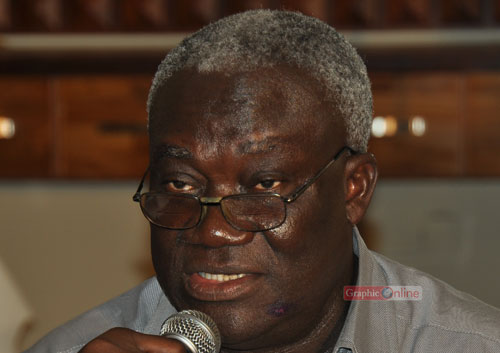TUC demands clarity on rising wage bill
 The Trade Unions Congress (TUC) has called for more clarity on the factors accounting for the continuous rise in the public sector wage bill.
The Trade Unions Congress (TUC) has called for more clarity on the factors accounting for the continuous rise in the public sector wage bill. It argues that the current state of the wage bill cannot be blamed entirely on the implementation of the Single Spine Pay Policy (SSPP), particularly when not all public sector employees are paid under it.
“We agree that the single spine contributes to the sharp rise in the wage bill but is it all public office holders in this country who are paid under it? There are a whole lot of people whose salaries are also driving the wage bill up,” TUC’s Secretary General, Mr Kofi Asamoah, said in an interview.
Mr Asamoah is of the view that unearned salaries – money paid to dismissed staff and/or those who might have vacated posts as well as increased pays for Article 71 office holders and other public servants all cause the wage bill to continue to rise, contrary to the impression from the government that the implementation of SSPP is the cause of the rising wage bill in the country.
As a result, TUC, which is the umbrella body of organised labour in the country, has petitioned the government to publish data on the wage administration in the public sector to, among other things, show how much of the country’s current wage bill comes from which segment of public employees.
The government has since 2010, been battling with a consistent rise in the wage bill, which is the amount of money paid to public sector employees as wages and emoluments. That followed the start of the phased implementation of the SSPP.
The wage bill jumped from about GH¢2 billion prior to the implementation to about GH¢7 billion in 2012, according to data from that year’s budget.
Recent data from the Ministry of Finance also indicate that about GH¢3.5 billion was spent on wages and salaries from January to May, this year, and that is about 22.4 per cent higher than the budget target of GH¢2.9 billion.
“This phenomenon puts pressure on the public purse,” Mr Asamoah, whose TUC is currently in negotiation with the government over mandatory yearly increments in wages, told the Daily Graphic.
“But how much is coming from the single spine? That is what we want to know so that it can inform our actions,” he added.
“We think that there are still problems with the wage system and that is why we are calling for broader discussions on it,” he said, noting that although the SSPP has made most public servants better off, that increment, in most cases, was still not enough to accentuate the economic problems of the TUC’s members.
“If a policeman was taking GH¢300 and because of Single Spine, he is now taking GH¢600, that is good but how much is GH¢600 to someone with a family of, say, three children?” he asked.
“We know there are challenges but the government must also check and fix the loopholes in the system,” Mr Asamoah noted.
By Maxwell Adombila Akalaare/Ghana